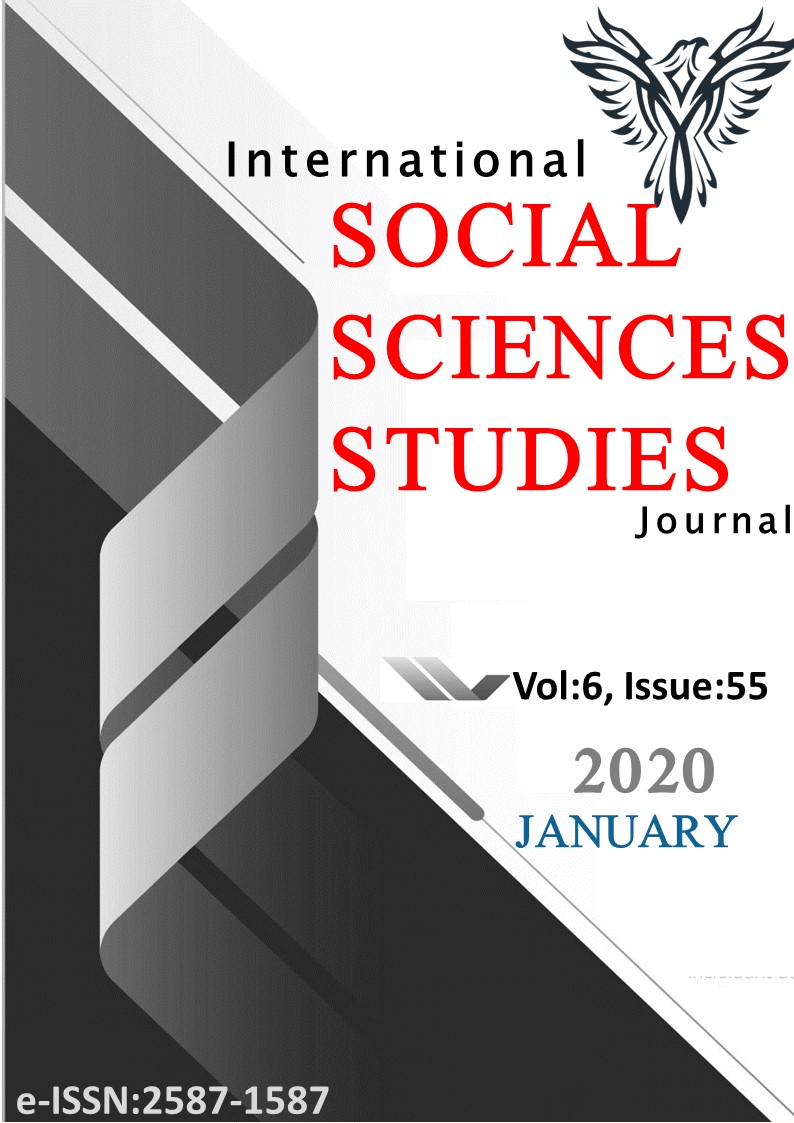Author :
Abstract
Sistem düşüncesi öğrenen örgüt disiplini kişisel ustalık, takım halinde öğrenme, paylaşılan vizyon, zihni modeller öğrenen örgüt disiplinlerini bir arada tutmayı ve kendisi dahil olmak üzere söz konusu diğer 4 disiplin ile birbirleri arasında tamamlayıcılık ve ilişki kurma işlevlerini sağlamaktadır. Dolayısıyla sistem düşüncesinin bu işlevleri sağlaması için ilk olarak kendisine ait değişkenlerin tutarlı olması ve birbirlerini tamamlaması gerekmektedir. Bu anlamda araştırmanın literatür kısmında, sistem kavramı ve sistem kavramının yönetim ile olan ilişkisi belirtilerek sistem düşüncesi öğrenen örgüt disiplini ve sistem düşüncesi öğrenen örgüt disiplinini oluşturan değişkenler açıklanmıştır. Çalışmanın hedefi, sistem düşüncesi öğrenen örgüt disiplinine ait olan değişkenler arasındaki ilişki derecesini tespit etmek ve buna bağlı olarak söz konusu sistem düşüncesine ait olan değişkenler arasındaki ilişki ve tamamlayıcılık durumuna katkı sağlayan/sağlamayan değişkeni/değişkenleri tespit etmektir. Çalışmada, sistem düşüncesi öğrenen örgüt disiplinine ait değişkenler arasındaki ilişkileri tespit etmek amacıyla Karabük demir-çelik kurumunda çalışanların sistem düşüncesi öğrenen örgüt disiplini değişkenlerini algılamaları kapsamında söz konusu çalışanlara anket uygulanmıştır. Araştırma, mevcut evren üzerinden evren sayısına uygun örneklem sayısı ile yapılmıştır. Çalışma kapsamında araştırmanın güvenirliliği ve geçerliliği sağlanarak sistem düşüncesi öğrenen örgüt disiplinine ait olan değişkenler arasındaki ilişki düzeylerini tespit etmek amacıyla pearson korelasyon katsayısı uygulanmıştır. Bunun yanında, sistem düşüncesi öğrenen örgüt disiplinine ait olan değişkenler arasındaki ilişkiler çoklu ölçekleme metodu uygulanması kapsamında değişkenler arasındaki mesafeler ile ilişkilendirilmiş ve bunun görselliği sağlanmıştır. Bulgulara göre, sistem düşüncesi öğrenen örgüt disiplinine ait değişkenler arası ilişkiler tüm değişkenler için pozitif yönlü, anlamlı genel anlamda ise orta seviyede olduğu tespit edilmiştir. Buna bağlı olarak söz konusu değişkenler ilişkisel yapıya genel anlamda orta seviyede katkı sağlamışlardır. Dolayısıyla bu durum, ilgili kurumca sistem düşüncesi öğrenen örgüt disiplinlerinin birbirlerini tamamlamasını sağlayacak imkanların ve şartların sağlandığını göstermektedir. İhtiyaç duyulması halinde, ilgili kurumca sistem düşüncesi öğrenen örgüt disiplinini oluşturan değişkenlerin birbirlerini daha çok tamamlaması kapsamında söz konusu değişkenlerin birbirlerini ilgilendirecek ve birbirlerine entegrasyon sağlayacak faaliyetler sağlanabilir.
Keywords
Abstract
The discipline of organizational thinking, which provides system thinking, provides personal mastery, team learning, shared vision, mental models, and the complementary and relationship-building functions of the four other disciplines including himself. Therefore, in order for the system thinking to provide these functions, first of all its variables must be consistent and complement each other. In this sense, in the literature part of the research, the system concept and the relationship between system concept and management are stated and the variables that make up the discipline of the system thinking and the discipline of the organization thinking are explained. The aim of the study is to determine the degree of relationship between variables belonging to the discipline of the system thinking learning system and accordingly to determine the variable /variables that contribute / not contribute to the relationship and complementarity between the variables belonging to the said system thought. In the study, in order to determine the relationships between variables belonging to the discipline of system thinking learning organization, a questionnaire was applied to the employees in Karabük iron and steel institution within the scope of perception of system thinking learning discipline variables. The research was conducted with the number of samples appropriate to the number of the universe over the current universe. Within the scope of the study, the reliability and validity of the research were obtained and the pearson correlation coefficient was applied to determine the level of the relationship between variables belonging to the organizational discipline learning system thinking. In addition, the relationships between variables belonging to the discipline of organization learning system thinking were correlated with the distances between variables within the scope of applying multiple scaling method and its visuality was provided. According to the findings, the relationships between variables belonging to the organizational discipline of learning system thinking were found to be positive, significant for all variables and medium level in general. Accordingly, these variables contributed to the relational structure in a medium level. Therefore, this shows that the relevant institution provides the necessary opportunities and conditions to ensure that the disciplines of organizations learning system thinking complement each other. In case of necessity, within the scope of the complementary of the variables constituting the discipline of the organization learning the idea of the system, activities related to each other and providing integration to each other can be provided.
